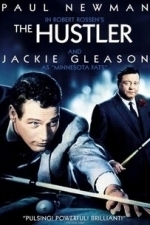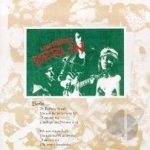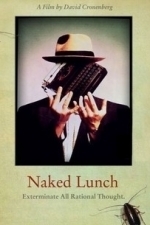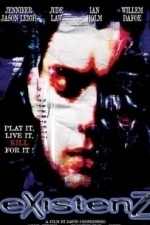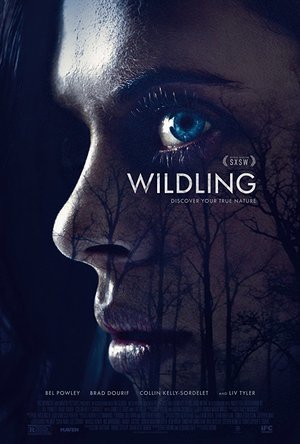TravelersWife4Life (31 KP) rated Essential Oils: God’s Extravagant Provision for Your Health in Books
Feb 24, 2021
The first thing I noticed, was Teri Secrest’s love for her family. It is readily apparent throughout the whole book. She shares many examples of times that her family has used essential oils in their intended purpose with great success, even in the face of great odds. Personally, it was cool to read about the different healing properties that essential oils provide. It encouraged me to try new things, and research more about essential oils to know if the ones I am currently using are actually “pure” or if they are artificial scents.
Second, Teri Secrest has taken the time to research everything about essential oils, from the process of making the oils, preserving the oils, and the Biblical implications of the different oils. She has pursued the knowledge of essential oils for most of her life, she has sought that knowledge from others who have made it their lives work to keep essential oils alive for generations to come. Teri has also extensively traveled to places where essential oils are grown and preserved. Her love of that essential oils readily shows in her portrayal of the importance of essentials in our daily lives; based on the biblical use of essential oils.
Third, I loved how this book read as more of a story. Teri Secrest walked me through the Bible (highlights, stories, and Biblical references) of different times where essential oils were used and the purposes in using them. I think my favorite was the story of King Solomon. However, there are over 500 different references to essential oils in the Bible! I had no idea that essential oils were so extensively mentioned in the Bible. Interwoven throughout these Biblical stories is Teri Secrest’s personal journey with learning to use different essential oils.
Overall, I was wonderfully surprised by this well laid out storyline that read like a novel (almost), with colorful pictures, descriptions, and the recipes for different essential oil uses. I truly think that this was a great book to grow my understanding of essential oils and how they relate to the Bible and our overall health. I am looking forward to trying some of the ideas that Teri Secrest mentioned.
I give this book 5 out of 5 stars for the creative storytelling Teri Secrest used to weave in multiple facts, Biblical wisdom, and personal stories to create an informative and enjoyable book. As well as the assembly of Biblical facts explained in an easy to understand way and the vivid descriptions of the different oils used in the Bible. I truly cannot recommend a book more.
*As a side note I usually include a disclaimer saying I was given this book in exchange for my honest review, which I was. However, I have also purchased a copy for myself and two additional copies as Christmas gifts, as I believe people will really enjoy and learn from this book.
Jeff Nichols recommended The Hustler (1961) in Movies (curated)
Natasha Khan recommended Berlin by Lou Reed in Music (curated)
Andy K (10823 KP) rated Naked Lunch (1991) in Movies
Sep 28, 2019
Director David Cronenberg has always been known as someone who pushes the envelope of film storytelling to its limit. This is not more on display in maybe any of his films more than it is in Naked Lunch.
In 1952 New York, pest exterminator Bill Lee has an problem in his life. His wife, Joan, has begun using and is now addicted to his "bug powder" he uses in his job. She shoots it into her veins for her narcotics addiction. She is so full of the intoxicant she can even breath on cockroaches to kill them . Bill is arrested for his involvement and begins to trip himself.
His high continues as he now believes he is a secret agent who has been told he must murder his wife. He returns home and actually accidentally does so in a case of ironic accomplishment.
His trip takes him to North Africa where he meets a slew of bizarre and unsavory characters in his attempt to complete his ongoing "mission". He writes a series of articles using a typewriter which continually morphs into a giant cockroach. He finds another man who lets him borrow his typewriter in which his living typewriter is maimed and killed by Bill's device. Another man Bill meets may actually be a giant killer centipede in disguise!
If this doesn't make a lot of sense, I don't think it is really supposed to. Cronenberg's film, according to the writer/director himself, is an amalgam of not only the source material novel by William S. Burroughs, but also other works by the author and even some aspects of Burroughs' own life including the wife shooting incident.
Pretty much right from the start you know you are in for something very unusual when Lee starts having a conversation with his bug typewriter 15 minutes into the film. Then add another conversation with a giant "mugwump" sitting at a bar, a bug that bizarrely speaks in a voice from his bulbous anus and the fore mentioned giant centipede, you have a film in which you never are fully aware of what is real or what has become a drug-filled fantasy.
Cronenberg's fascination with the "body horror" style of film goes way back to some of his earlier films including The Brood and Scanners as well as They Fly remake. All his skill at creating one of a kind images are on full display here and you can't take your eyes off the screen as a result.
The entire cast really inhabit their roles including Peter Weller (who turned down Robocop 3 for this role) as Lee. His monotone, stoic delivery and minimalist physicality is perfect for this role. Throw in supporting performances by Ian Holm, Judy Davis and even Roy Scheider and you have found a perfect ensemble for this strange acid trip of a film.
The jazz soundtrack is also legendary including saxophone maestro Ornette Coleman off a score from Howard Shore. The improvisation and inconsistent melodies are a partnership with the unusual story taking place and form a symbiosis with the film.
You definitely leave the film wondering what you have just watched; however, sometimes that s a good thing. The director makes you think about what you have watched and decide for yourself the important elements what what is actually true.
I wish more films were like this!
Andy K (10823 KP) rated Existenz (1999) in Movies
Sep 23, 2019
Unfortunately, her party was rudely interrupted by a would-be assassin who wants to put an end to Geller before the game is released. Wounded but not executed, her fate is given to be marketing assistant who has never played a game in his life. The two escape and begin a road trip like no other trying to navigate their situation and figure out who they can trust.
The game novice, Ted Pikul, soon gets himself a "port" so he can join Gellar in the game and to also ascertain whether her main controller hub was severely damaged in the attempt on her lie. Once jacked in, he begins to slowly morph into a more submersive version of the same gradually losing control of himself an becoming his in game character.
The other "participants" they meet serve to enhance the game experience either with conflict or assistance, but it is hard to tell which side everyone plays for. The two become passionate for each other, but still are unable to comprehend whether their feelings are real or just part of the game.
They need to figure out how to finish the game so they can return back to reality.
The last of David Cronenberg's "Body Horror" films before he took his career in a different direction in the 2000s with films like "Eastern Promises" and "A History of Violence", eXistenZ is one truly wild and unique ride. If you have seen some of his other film in the genre like "The Fly" or "The Brood" you would be used to the over-the-top gore, brutality and strange way of storytelling he has made his career.
His characters are flawed, but motivated and that is why you are interested in their situation and go along with them. This film has some remarkable visceral, macabre elements that make it extremely unique, which is why you watch a movie like this. The internet was only a few years old in 1999 and games like World of Warcraft were still years away; however, this film underscores the dangers of becoming too close to the online world and the dangers it could cause.
At many points during the film, you wonder whether you are still within the game itself similar to watching a "Nightmare on Elm Street" film and wondering if you are still dreaming.
Jennifer Jason Leigh has never really gotten the respect she deserves. Whether in the recent "The Hateful Eight" or in films like "Dolores Claiborne" or "Single White Female" she has shown longevity and the ability to play complex, sometimes unlikable characters with the charisma and charm. I liked the fact she was a female game designer, leading in her field, in 1999 when there were probably not many like her at the time.
This film will keep you guessing all the way to the end and even leave you to interpret what you have just seen as the credits roll.
Easily recommended for gruesome horror fans.
Darren (1599 KP) rated Wildling (2018) in Movies
Oct 14, 2019
Performances – Bel Powley is great in this leading role, she must go through a transformation and play the fish out of water figure too. Brad Dourif is just as creepy and you need him to be, always going to work in this type of role, with Liv Tyler being the cop that believes they know what will be right for victim, trying to be the role model figure.
Story – The story here follows a young girl that is raised in the woods, only to be released to discover who she really is and what she is capable off. This story does follow the traditions of seeing a young girl taken and raised in secret, before something happens to bring her into the real world, this side of things has been done before, it works and is an effective way to bring a stranger into a modern world. Where this story takes an interesting turn comes from the reason behind why she was being kept, we do get to see what she really is, but we don’t get to see if she is a threat to everybody else, we do get a couple of message in this film too that want to point out certain motives in hunting, but overall the story keeps us guessing and surprised by the truth.
Fantasy/Horror – This film does dive into fantasy when it comes to learn what Anna really is, we have ideas early on, but we are never truly sure what she will become, this does help with the horror side of the film because it keeps us waiting to see if there will be more bloodshed.
Settings – The film is set in a town surrounded by woodlands, this shows first where she was raised and where the people will welcome her, right back to where she feels more comfortable.
Special Effects – The effects are used to show the wounds and the look of the Wildling figure, there give us a creepy but natural looking creature and the blood isn’t afraid to be splashed about here.
Scene of the Movie – Home from the party.
That Moment That Annoyed Me – We could spend more time learn the normal human life.
Final Thoughts – This is a fun fantasy horror, it doesn’t hide the blood and is happy to give us a twist on the traditional storytelling.
Overall: Fantasy Horror 101

Prompts - Beat Writers Block
Productivity and Education
App
Writing with Prompts is like writing with an inspirational coach sitting beside you. The app learns...

Stellaris: Infinite Legacy
Tabletop Game
The Galaxy is vast and full of wonder Academy Games introduces the 4X board game based on the hit...

République
Games and Entertainment
App
In “Episode 5: Terminus," the fifth and final episode of the thrilling République saga, battle...

Potty Time with Elmo
Education and Book
App
Elmo reads this animated storybook and song app that will help teach your child about potty training...

